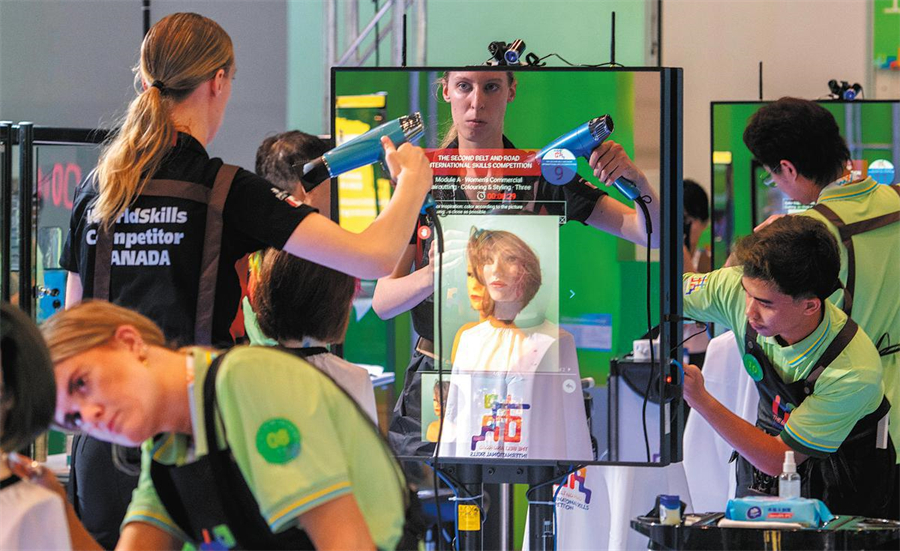Plan to boost BRI skills training cooperation

Contestants are pictured during a contest of the second Belt and Road International Skills Competition in Southwest China's Chongqing on June 24. [Photo by Cui Li/For China Daily]
China is ramping up cooperation on skilled talent development and exchange with countries participating in the Belt and Road Initiative.
The Ministry of Human Resources and Social Security launched a skills action plan in Chongqing on Tuesday. The plan focuses on sharing China's successful skills training systems, educational resources and practical experiences with BRI nations.
A key aspect of the plan involves actively pursuing mutual recognition of skills certificates across BRI countries. Additionally, China will contribute to the development and release of universal skills standards.
The launch of the skills action plan coincides with the ongoing Belt and Road International Skills Competition in Chongqing. The three-day competition, concluding on Wednesday, features nearly 190 contestants from China and BRI countries competing in 18 skilled trades such as hairdressing, digital construction and information network cabling.
Zeng Wei, Party secretary of Guangzhou Industry and Trade Technician College, highlighted the college's successful training programs for nearly 800 individuals from over 20 BRI countries, including Cambodia and Malaysia. The programs cover high-tech sectors like refrigeration, vehicle maintenance and website development.
"We've shared cutting-edge technologies and solutions," Zeng said. "China's unique approach to skills development, emphasizing both knowledge and practical skills, is being made available to countries worldwide."

Contestants are pictured during a contest of the second Belt and Road International Skills Competition in Southwest China's Chongqing on June 24. [Photo by Cui Li/For China Daily]
CRRC Group, one of China's major rail transport companies, has initiated many overseas skills training projects within the BRI framework. Cheng Dongran, the company's human resources director, said it has established several workshops and training bases in countries such as Malaysia, Thailand and Nigeria to help cultivate talent and skilled workers for operating and maintaining high-speed and urban rail systems.
Fei Cui, from the Lao National Chamber of Commerce and Industry, said the chamber has developed educational and skills training partnerships with Chongqing, Yunnan province and other Chinese regions. "The chamber has cooperative relationships with about 100 Chinese universities and colleges, yielding significant results," she added.
Young people across BRI countries have expressed their desire to participate in international skills exchange programs and competitions.
Muhammad Arif Irfan, a 23-year-old Malaysian competitor in the digital construction event, emphasized the value of such competitions. "These events allow us to learn from fellow competitors and contribute to the development of our industries," he said.
























